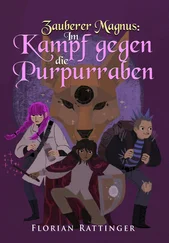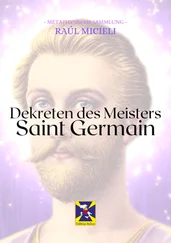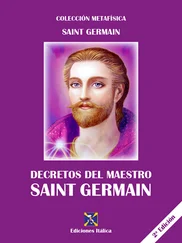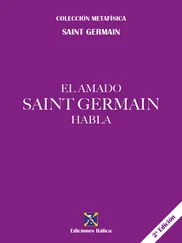Sylvie Germain - Magnus
Здесь есть возможность читать онлайн «Sylvie Germain - Magnus» весь текст электронной книги совершенно бесплатно (целиком полную версию без сокращений). В некоторых случаях можно слушать аудио, скачать через торрент в формате fb2 и присутствует краткое содержание. Год выпуска: 2008, Издательство: Dedalus Ltd, Жанр: Современная проза, на английском языке. Описание произведения, (предисловие) а так же отзывы посетителей доступны на портале библиотеки ЛибКат.
- Название:Magnus
- Автор:
- Издательство:Dedalus Ltd
- Жанр:
- Год:2008
- ISBN:нет данных
- Рейтинг книги:3 / 5. Голосов: 1
-
Избранное:Добавить в избранное
- Отзывы:
-
Ваша оценка:
- 60
- 1
- 2
- 3
- 4
- 5
Magnus: краткое содержание, описание и аннотация
Предлагаем к чтению аннотацию, описание, краткое содержание или предисловие (зависит от того, что написал сам автор книги «Magnus»). Если вы не нашли необходимую информацию о книге — напишите в комментариях, мы постараемся отыскать её.
Magnus — читать онлайн бесплатно полную книгу (весь текст) целиком
Ниже представлен текст книги, разбитый по страницам. Система сохранения места последней прочитанной страницы, позволяет с удобством читать онлайн бесплатно книгу «Magnus», без необходимости каждый раз заново искать на чём Вы остановились. Поставьте закладку, и сможете в любой момент перейти на страницу, на которой закончили чтение.
Интервал:
Закладка:
Each went their own way, Clemens and Thea out in the open to the resounding drum-rolls of the conquering Reich, Lothar and Hannelore aligning themselves with a clandestine resistance whose courage failed to make up for the lack of underground combatants. Intoxicated with promises of glory, or preferring to keep a low profile in the face of a brutal power, the population complied en masse with the prevailing pernicious ideology.
In 1937 the Nazi repression hardened and led to a wave of arrests in dissident circles. Pastor Martin Niemöller, among many others, was imprisoned, summarily tried and finally interned at Sachsenhausen, and then Dachau, and all the parallel seminaries run by the Confessing Church were shut down. That same year the Catholic Church which, not appreciating the criminality of the Hitlerian enterprise, had signed the Concordat with the Nazi State four years earlier, published the encyclical ‘With Passionate Concern’. But the Führer cared nothing for these proclamations of virtuous indignation and just carried right on, crushing any obstacle that lay in his path as he marched towards the podium of savage gods.
Endangered as a dissident, forbidden to engage in any pastoral or educational activity and, even more pressingly, worried for his wife and the future of their two daughters, aged five and three, Lothar decided to emigrate in the spring of 1938. But he was aware when he went that he was leaving a clear field for Clemens, who was a bad influence on Franz and Georg. Wilhelm and Friedericke Schmalker had long since come to their senses and apprehended with increasing dismay to what extent the regime whose rise to power they had greeted with a certain satisfaction was actually based on lies, madness and brutality, but try as they might to warn their two youngest sons the boys would not listen. The already aging parents had lost any degree of authority over their fanatical offspring for whom Hitler was a god, Clemens their role model, and war their vocation.
War, or the delirium of crime raised to the level of a sacred mission. Franz and Georg had joined the Waffen-SS with the faith of young crusaders, and they had ruthlessly killed, burned, massacred in the name of this creed steeped in blood. Franz was killed in combat, in all the glory of his raging passion, but Georg had at that same fatal moment abruptly lost his faith. With his brother’s shattered face before him, he had suddenly seen the true countenance of their war god: a piece of torn and bleeding meat. Although this was something that he, death’s enthusiastic henchman, had often seen before, he had never attached any importance to it. For him, his victims, dead or alive, had no face. Even the sight of his comrades killed in battle had not affected him so deeply. He had only one twin brother, Franz, his double, his second self, his own heart’s echo. Franz alone could open his eyes by having his mask torn off, that of the supposedly new man, revealing the raw flesh of his poor mortal’s face. So this was war, nothing but this, insanely this.
A radical reversal then occurred in Georg. His belief in the superman celebrated by his party all at once evaporated, stricken with inanity, giving way to a faith in man, ordinary man, just as he is in his imperfection and vulnerability. He threw down his arms and refused to take part in any more fighting. This refusal, in which he persisted, was seen as tantamount to desertion, for which he was tried and found guilty, and soldier Georg Felix Schmalker was stripped of his rank, condemned to death and summarily executed.
Clemens, having learned of the affair, strove to hush up the scandal of this shameful end, as much to spare Thea (who with regard, to the twins to whom she bore a jealous love, had long since usurped Friedericke’s role of mother) as to avoid damage to his own career. But the family did finally get wind of this secret nevertheless. It gave the parent a little glimmer of consolation in their grief, but Thea denied what had happened and proclaimed her two brothers to be just as united in a heroic death as they had been throughout their lives.
Lothar had vowed to return to Germany as soon as Nazism was defeated, to be at his parents’ side at last, and to take part in the rebuilding of his country and particularly of the Lutheran Church. But his parents were killed in the bombardments that brought victory and many of his friends had died, including Dietrich Bonhoeffer, who after two years in captivity had been hanged on 9 April 1945 at Flossenburg, the last camp to which he was transferred. Reduced to ashes, his incinerated body was scattered in the wind.
But the wind over the Reich carried so many human ashes that it bore down with enormous weight on the country in ruins, a stinking wrap that obscured the sky and suffocated the earth. In the sky of the collapsed Reich extended a vast cemetery, invisible but palpable, being extremely greasy. And in this cinerary sky drifted all the members of Hannelore Schmalker née Storm’s family. So for her, it was out of the question to return to that country she ceased to regard as hers. She did not want to live beneath a canopy of incinerated flesh and unconsoled tears — unconsoled, and incurably inconsolable.
Sequence
Only he who cries out in defence of the Jews and the communists has the right to sing Gregorian chant.
Dietrich Bonhoeffer
Death fugue
Black milk of first light we drink it in the evening
we drink it morning noon and at night we drink it
we drink and drink
we dig in the air a grave not cramped to lie in
A man lives in the house he plays with snakes he writes
to Germany when it darkens over he writes your golden hair Margarete
he writes and steps out and the stars glitter he whistles up his hounds
he whistles out his Jews to dig a grave in the earth
he commands us strike up for the dance…
He shouts sweeten your playing of death, death is a master from Germany
he shouts darken your strings then as smoke in the air you’ll rise
a grave in the clouds you’ll have a grave not cramped to lie in…
death is a master from Germany
your golden hair Margarete
your ashen hair Shulamith
Paul Celan, ‘ Todesfuge ’
Fragment 9
Adam has pieced together one part of the family jigsaw puzzle that is much more like a painting by Otto Dix, George Grosz or Edward Munch than the romantic picture his mother presented to him. But this puzzle still remains very incomplete. There is a gap surrounding his early childhood and Lothar is unable to help him fill it since his uncle left Germany the year he was born.
He learns English quickly, but without experiencing the same emotion that Spanish affords him. He pursues the study of both languages simultaneously, one out of practical necessity, the other because of an inner need. He has set up Spanish as an absurd talismanic goal: he is determined to gain a perfect command of the language of the fraudulent Felipe Gomez Herrara in order to gain ascendancy over the ghost of that assassin whose crimes remain for ever unpunished, and over the loathsome charm to which he, the deceived abandoned son, above all the son unbearably tainted by this kinship, is still susceptible. It is no longer a tomb for the suicide’s body that he wishes to build with this language but a fortress in which his father will be eternally confined. In fact he wishes he could dissolve his father in the words he aggressively masters, as though in acid.
As for his mother, he is unable to locate her precisely in the irregular geographies of his heart. He thinks of her in a turmoil of tenderness, resentment, anger and pity. He thinks of her often, so often he cannot accept the idea he will never see her again.
Читать дальшеИнтервал:
Закладка:
Похожие книги на «Magnus»
Представляем Вашему вниманию похожие книги на «Magnus» списком для выбора. Мы отобрали схожую по названию и смыслу литературу в надежде предоставить читателям больше вариантов отыскать новые, интересные, ещё непрочитанные произведения.
Обсуждение, отзывы о книге «Magnus» и просто собственные мнения читателей. Оставьте ваши комментарии, напишите, что Вы думаете о произведении, его смысле или главных героях. Укажите что конкретно понравилось, а что нет, и почему Вы так считаете.












